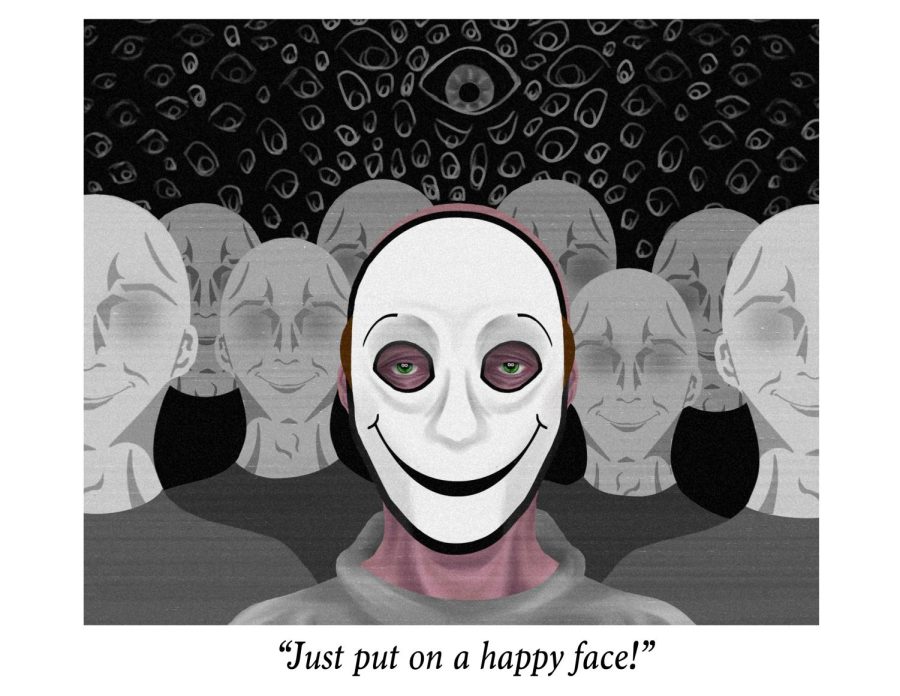Masking Mental Illness
Unbearably bright lights, overwhelmingly loud noise, constant movement. Airhorns, cheering and cursing all melding into one, mind-melting wave of sound. A societal obligation to stay in the seat, to not bring down the mood, to conceal “abnormality,” even as nerves stretch impossibly thin.
This is a regular experience for someone with undiagnosed autism. Plenty of students go through the same struggle of hiding reactions that they have been taught are strange, whether they have autism, ADHD, or any other mental illness. In the mental health field, this is called masking.
“I tried to hide it, because I knew any stimming was not normal and my mom was like, ‘People who do that are weird,’” junior Jupiter Haynes said. “There were a lot of things that my mom told me, ‘Normal people don’t do that,’ so I stopped doing them–at least in public.”
Stimming, or self-stimulation, is something most people engage in unconsciously. For example, leg-jiggling or fingernail-biting are types of stimming. However, the stimming that neurodivergent people engage in may be more obvious, to the point that outsiders often assume it is a distraction. On the contrary, studies show that it actually improves focus for people with ADHD, like Haynes. For someone who has to mask, then, their ability to focus in class may be affected–but that’s not the only thing.
“They’re probably having difficulties concentrating and getting work done, which might look like failing grades in school,” counselor Aaron Reyes said. “It also takes a toll on their social/emotional state, so even their social connections they have with friends or had with friends or people in general seem to suffer.”
So, if it has all of these negative effects, then the big question is: Why do people mask? The answer varies, but for Jupiter, the root cause is the adults in their life.
“My grandma put me in a manners class, and it basically taught me how to mask better, without me realizing that’s what it was doing,” Haynes said. “So then I just used those traits and put them into everyday life.”
It is also very common for students to be influenced by their parents’ opinions and biases. For the earlier generations, most of whom are not used to the emerging positive attitude toward mental health, it may be difficult to understand how to help their children, or even why they should do anything about it.
“Home life is one thing that takes a toll if your mental health’s not addressed,” counselor Aaron Reyes said. “You could have some erratic behavior, and your parents might not know how to respond or react to that stuff, so then you get labeled as the “problem child” that has issues, when really, that could be easily remedied with some other mental health support.”
As a counselor and former juvenile services officer, Mr. Reyes has a lot of experience with teenagers who have various mental health issues.
“We just need to be accepting, and understand that not everyone is cut from the same cloth and coming from the same background,” Reyes said. “You never know what’s going on or what struggles people are trying to deal with, so simple gestures can go a long way in making someone feel comfortable.”
Amidst the chaos and blaring stimulation of our world, neurodivergent people face the decision to either hide who they are or be true to themselves. It’s not an easy choice, since the judgment of others can hurt more than anything else. As a community, the best thing we can do is allow others to express themselves and make accommodations, rather than forcing “normality” onto them.






